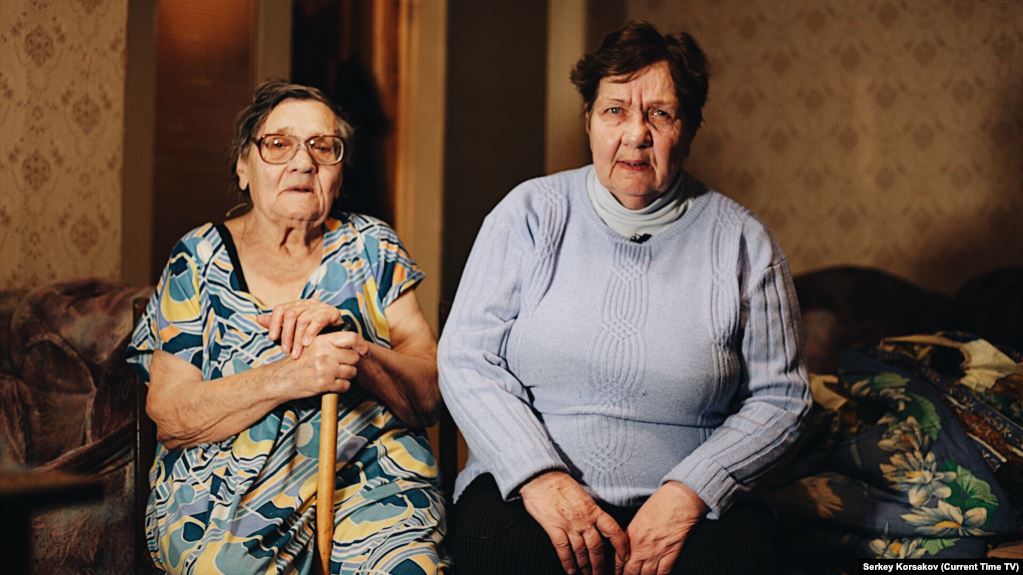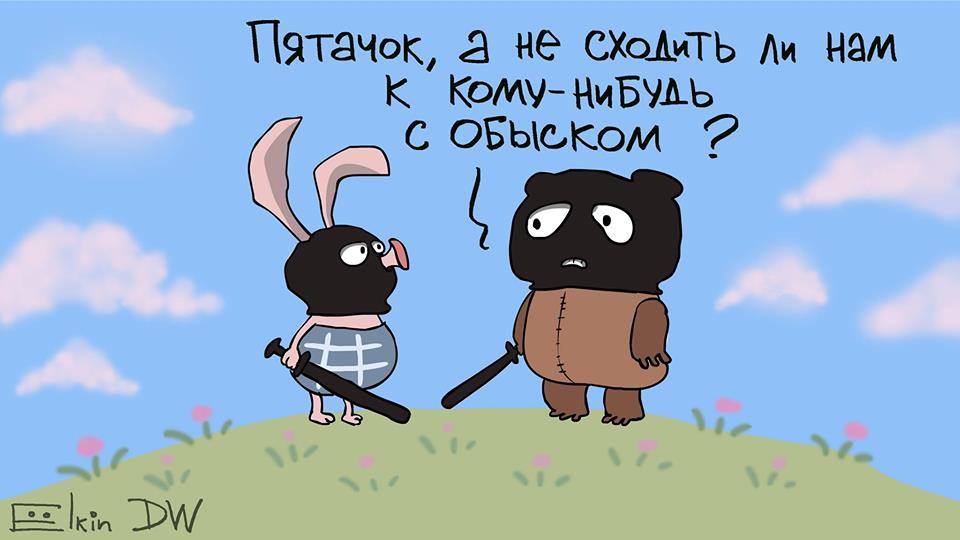 “Release political prisoners! They should not be in prison!” Muscovites rally in support of political prisoners on Sakharov Avenue on September 29, 2019. Photo by Pyotr Kassin for Kommersant. Courtesy of MBKh Media
“Release political prisoners! They should not be in prison!” Muscovites rally in support of political prisoners on Sakharov Avenue on September 29, 2019. Photo by Pyotr Kassin for Kommersant. Courtesy of MBKh Media
Extremely Knowledgeable Russians
Ivan Davydov
MBKh Media
January 21, 2020
While you more or less grasp the sheer abnormality of the current Russian regime and even are aware of the nitty-gritty when it comes to certain things, you gradually learn to put up with a lot. You get used to it, you develop defensive skills. Constantly experiencing righteous anger is hard on the psyche. Nor does it happen on schedule, three times a day for twenty minutes, after meals, by way of clearing your conscience.
For example, you’re walking in downtown Moscow and you think, What the hell, it really has become nicer. Of course, you recall the savage corruption of the powers that be, and the trick they pulled with the elections last summer, and their persecution of ordinary people, but it has become prettier. There are the cozy shops and cafes, the lovely food courts, the new subway stations, and the Moscow Central Circle. Comfort and convenience trump righteous anger, and you catch yourself thinking, Well, they steal, naturally (I’m curious, by the way: is the word “naturally” accidental here or not? Probably not anymore), but they could just steal outright. Instead, they make improvements, and those improvements benefit more people than just them.
And it’s not that you forgive them for theft, election fraud, and last summer’s police dragnet against random passersby, but all of it recedes to the edge of consciousness, turning into cute, almost ordinary naughtiness.
But there are things you can’t put up with at all. It is impossible, for example, to forget that people are regularly tortured in Russia, including people who were allegedly planning a coup d’état, people who believe in God the wrong way (per our current laws), and the occasional lowlife whom the aces at the local police station have decided to frame for all the unsolved cases in the last couple of months.
I walk down the street, noting that Moscow has become prettier by any reckoning, and now, maybe, I’ll go into a cozy little cafe and have a cup of coffee. And almost certainly at the same time somewhere agents of the state will be torturing an ordinary person. This awareness pierces the brain like a nail—there’s no escaping it, it is painful and shameful. It’s a strange thing: I am not torturing anyone myself, but I’m ashamed for some reason. Or, rather, for some reason it’s me who is ashamed.
The same goes for awareness of the existence of political prisoners in Russia. More than two hundred people are in prison only because they allowed themselves to think something about the current Russian government that the current Russian government didn’t like. This is according to Memorial, which has been designated a “foreign agent,” so you can believe its figures. More than two hundred people are being punished for incorrect thoughts, and it’s impossible to reconcile yourself with this fact in any way.
Neither the prettified streets of the big cities, nor the funky art exhibitions, nor the generous handouts the president has promised the disadvantaged and veterans can absolve the state of its guilt. This just should not be happening, but that’s the way it is.
A recent survey by the Levada Center provides some comfort. I am not the only one in Russia who is so knowledgeable: there are a fair number of us. By the way, the Levada Center has been designated a “foreign agent,” so you can trust their findings. “Foreign agent,” after all, is something like a mark of quality, a certificate of non-complicity in the state’s lies.
When asked whether there were currently political prisoners in Russia, 23% of respondents answered yes, while another 40% answered that yes, there probably were political prisoners. Thus, a sizeable majority of people (63%) either know for certain or are reasonably sure that people are jailed in this country for thinking the wrong thoughts. The number of informed Russians has been growing. The poll was conducted in December 2019; in December 2018, 50% of those polled were aware of political prisoners. Analysts attribute this growth to the efforts of Moscow city hall, the noisy scandal over last autumn’s elections, and the protests ignited by the so-called Moscow Case.
I saw a happy tweet on Twitter from an opposition activist: “Hooray! Two thirds of Russians are aware of political prisoners! This is the result of our work! But we need more people to know.” I saw the tweet, but I immediately lost the link and forgot who wrote it. I wondered, however, whether there was much reason for celebration.
Two thirds of Russians are aware there are political prisoners in Russia, but this has not generated much of a furor. Even when the Moscow Case was in full swing, only a few hundred people in Moscow—a drop in the ocean—came out to picket in support of political prisoners. Thirty thousand people or so attended an “authorized” protest rally: this is nothing in a city of twelve million people. And in comparison with the number of people who are supposedly aware, it’s also nothing.
This means, apparently, that the vast majority of Russians consider the presence of political prisoners in the country to be the norm. I hope that, at least, they consider it an abnormal norm—that is, more or less the way I view corruption in Moscow. They see it as something unpleasant, of course, but not particularly terrible, as something they can live with.
Speaking of which, last summer the Levada Center published the results of a survey on the use of torture by the security forces. The numbers were absolutely terrible: 10% of Russians had experienced torture. This is not two hundred some people we’re talking about, but millions of people. 60% of those polled considered torture unacceptable, which is also seemingly a cause for joy. But that means that 40% either think torture is justified or haven’t formed an opinion on the subject: they are not moved by this sad, literally painful topic.
What’s the point in guessing, though? 30% of respondents stated outright that they considered torture justified in “exceptional cases.” I’ve never understood where the instinct for self-preservation goes in such cases. How can you be sure it won’t be you who turns out to be such an “exceptional case” for a tipsy policeman one day?
I don’t like it when folks chew out the “Russian people.” People in Russia are normal, on the whole, no worse than other people. Especially since I’m one of those people. There is no excuse for looking down on “the people.” It’s stupid and silly.
However, I see no particular cause for optimism when it comes to the polling data on awareness of political prisoners in our country. It points to a serious societal disease, and most important, it is completely unclear what the cure for it is.
But for starters, of course, all political prisoners must be released.
Thanks to Julia Murashova for the heads-up. Translated by the Russian Reader
 Boris Vishnevsky. Photo courtesy of Deutsche Welle
Boris Vishnevsky. Photo courtesy of Deutsche Welle Valentina Fyodorovna and Tamara Andreyevna, the great-grandmother and grandmother of
Valentina Fyodorovna and Tamara Andreyevna, the great-grandmother and grandmother of  Andrei Barshay, 21 years old, a student at Moscow Aviation Institute. Volunteer teacher at the institute’s physics and math magnet school. Pleaded not guilty to charges of using force against a police officer. Investigators claim Barshay ran at a Russian National Guardsman and pushed him in the back, causing him pain, during the July 27 protest rally in Moscow. Photo by Yevgeny Feldman. Courtesy of Vedomosti.
Andrei Barshay, 21 years old, a student at Moscow Aviation Institute. Volunteer teacher at the institute’s physics and math magnet school. Pleaded not guilty to charges of using force against a police officer. Investigators claim Barshay ran at a Russian National Guardsman and pushed him in the back, causing him pain, during the July 27 protest rally in Moscow. Photo by Yevgeny Feldman. Courtesy of Vedomosti.  Vladimir Yemelyanov, 27 years old. Lives in Mytishchi and works as a store merchandiser. Pleaded not guilty to charges of using force against a police officer. Until his arrest, he took care of his 74-year-old grandmother and 91-year-old great-grandmother. Investigators claim he grabbed a Russian National Guardsman by the uniform and pulled him over, making it impossible for him to move and causing him physical pain. Photo by Andrei Vasiliev. Courtesy of TASS and Vedomosti
Vladimir Yemelyanov, 27 years old. Lives in Mytishchi and works as a store merchandiser. Pleaded not guilty to charges of using force against a police officer. Until his arrest, he took care of his 74-year-old grandmother and 91-year-old great-grandmother. Investigators claim he grabbed a Russian National Guardsman by the uniform and pulled him over, making it impossible for him to move and causing him physical pain. Photo by Andrei Vasiliev. Courtesy of TASS and Vedomosti Maxim Martintsov, 27 years old, laboratory worker. Pleaded not guilty to charges of using force against a police officer. Lives in Moscow but family lives in Bryansk Region. Until his arrest, he financially supported his elderly grandmother and grandfather. Investigators claim that, during the July 27 protest rally, he was on Rozhdestvenka Street, where he and Yegor Lesnykh attacked a Russian National Guardsman and threw him on the pavement. Photo by Andrei Vasiliev. Courtesy of TASS and Vedomosti
Maxim Martintsov, 27 years old, laboratory worker. Pleaded not guilty to charges of using force against a police officer. Lives in Moscow but family lives in Bryansk Region. Until his arrest, he financially supported his elderly grandmother and grandfather. Investigators claim that, during the July 27 protest rally, he was on Rozhdestvenka Street, where he and Yegor Lesnykh attacked a Russian National Guardsman and threw him on the pavement. Photo by Andrei Vasiliev. Courtesy of TASS and Vedomosti Yegor Lesnykh, 34 years old, native of Volzhsky, lives in Moscow. Works as a self-employed renovator. Pleaded not guilty to charges of using force against a police officer. Investigators claim that, during the July 27 protest rally, he and Maxim Martintsov threw a Russian National Guardsman on the pavement. In addition, Lesnykh, allegedly, kicked another law enforcement officer in the lower right part of his back. Photo by Andrei Vasiliev. Courtesy of TASS and Vedomosti
Yegor Lesnykh, 34 years old, native of Volzhsky, lives in Moscow. Works as a self-employed renovator. Pleaded not guilty to charges of using force against a police officer. Investigators claim that, during the July 27 protest rally, he and Maxim Martintsov threw a Russian National Guardsman on the pavement. In addition, Lesnykh, allegedly, kicked another law enforcement officer in the lower right part of his back. Photo by Andrei Vasiliev. Courtesy of TASS and Vedomosti Alexander Mylnikov, 34 years old. Lives in the South Butovo district of Moscow, and is employed as a courier. Pleaded not guilty. Investigators asked the court to put Mylnikov under house arrest. The father of three young children, he supports them and his spouse. Investigators claim that, during the July 27 protest rally, he, Yegor Lesnykh, and Maxim Martintsov threw a riot policeman on the ground. Photo by Andrei Vasiliev. Courtesy of TASS and Vedomosti
Alexander Mylnikov, 34 years old. Lives in the South Butovo district of Moscow, and is employed as a courier. Pleaded not guilty. Investigators asked the court to put Mylnikov under house arrest. The father of three young children, he supports them and his spouse. Investigators claim that, during the July 27 protest rally, he, Yegor Lesnykh, and Maxim Martintsov threw a riot policeman on the ground. Photo by Andrei Vasiliev. Courtesy of TASS and Vedomosti “Should we go and search someone’s home, Piglet?” Cartoon by
“Should we go and search someone’s home, Piglet?” Cartoon by  Vladislav Barabanov during a
Vladislav Barabanov during a  Leokadia Frenkel talks to local residents protesting vote rigging. Photo by David Frenkel
Leokadia Frenkel talks to local residents protesting vote rigging. Photo by David Frenkel

 Moscow’s streets are, apparently, reserved for planet-killing traffic jams and idiotic displays of state power, like this parade of trucks by the Moscow Highway Service. Yesterday, another of the city’s municipal agencies, which are run as profit-making “state enterprises,” Moscow City Transport, won a 1.2 million-ruble lawsuit against opposition leaders and independent city council candidates for the losses it incurred, allegedly, during the
Moscow’s streets are, apparently, reserved for planet-killing traffic jams and idiotic displays of state power, like this parade of trucks by the Moscow Highway Service. Yesterday, another of the city’s municipal agencies, which are run as profit-making “state enterprises,” Moscow City Transport, won a 1.2 million-ruble lawsuit against opposition leaders and independent city council candidates for the losses it incurred, allegedly, during the  Moscow schoolchildren were smart enough to win the All-Russian Chemistry Olympiad in 2017, but the Moscow police department thinks they are not smart enough to know and speak their own minds when it comes to politics. Photo courtesy of
Moscow schoolchildren were smart enough to win the All-Russian Chemistry Olympiad in 2017, but the Moscow police department thinks they are not smart enough to know and speak their own minds when it comes to politics. Photo courtesy of 